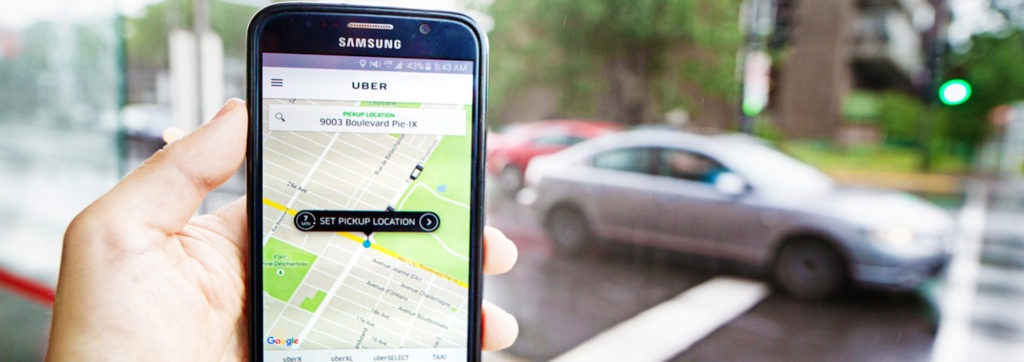Uber takes on air pollution with tripling of electric Leaf fleet in London
29 March 2017

29 March 2017
Uber has announced it is to triple the size of its electric vehicle (EV) fleet in London in an effort to tackle air pollution, in a move that could see a wider shift across its 100-plus European city operations.
As air pollution rises up the political agenda, with London Mayor Sadiq Khan in France to discuss the issue with the Mayor of Paris Anne Hidalgo, Uber will add a further 100 Nissan Leafs to its current 50-strong fleet introduced in London last summer. This 50-vehicle initial trial has proved successful, with more than 35,000 rides taken so far, giving Uber confidence to expand the scheme.
It will also create a network of rapid charging points across the city to support its expanding EV network. The Energy Saving Trust has highlighted in a study this lack of rapid charging in London as the top problem holding back EV driver adoption in the capital.
Uber UK regional manager Jo Bertram said: ′Our vision is for mass adoption of fully electric cars as private hire vehicles but there are some really big challenges we need to overcome,’ adding: ′Charging cars can be costly for drivers and there’s a serious lack of rapid charging points in central London.’
The Nissan Leaf scheme has so far saved half a metric ton of NO2 and 22 metric tons of CO2 compared to the Toyota Prius hybrid popular with many drivers.
Energy Saving Trust Group Director of Transport Andrew Benfield said: ′The study shows, in the main, electric vehicles are popular with both drivers and passengers. We also found that drivers want to see more rapid-charging options in London, as well as residential charging infrastructure to be able to re-charge overnight at or near home – the most convenient and cost-effective way of running an electric vehicle.’
Uber has previously been criticised for contributing to rising air pollution in London due to the increasing popularity and number of Uber drivers on the capital’s roads – something it is trying to combat with its electric scheme.
Mayor Khan will also soon release his new transport strategy which is expected to address the issue, and has already promised millions of pounds towards steps to reduce air pollution. Uber’s moves will help it to be prepared for upcoming changes. The City of London Corporation – which controls the small mile-square absolute centre of the capital – has called on Sadiq Khan to ban diesel-powered private hire vehicles, like those of Uber running on diesel, from London’s roads.
Diesel London Black Cabs will be phased out from 2018, to be replaced by electric versions built at a new factory in Coventry, UK and all London minicabs must be low emission from 2020.
Transport for London data shows that diesel cars and taxis together account for 18% of London’s emissions problem – 11% and 7% respectively, while petrol accounts for 3%. However, the biggest contributor (and hardest to budge) is that of buses and heavy lorries, which contribute 20% of overall emissions – with UK lobby the SMMT calling for a faster replacement of old diesel buses.
Meanwhile, Uber has resumed its autonomous testing in San Francisco only three days after one was involved in a collision in Arizona caused by the driver of another vehicle. A spokeswoman said that because the two cars registered with the California Department of Motor Vehicles were not transporting passengers, it felt confident to put the cars back on the road while it investigated the crash in Arizona. Its vehicles in Arizona, Pittsburgh and Pennsylvania remain grounded, but are expected to begin operating again soon.